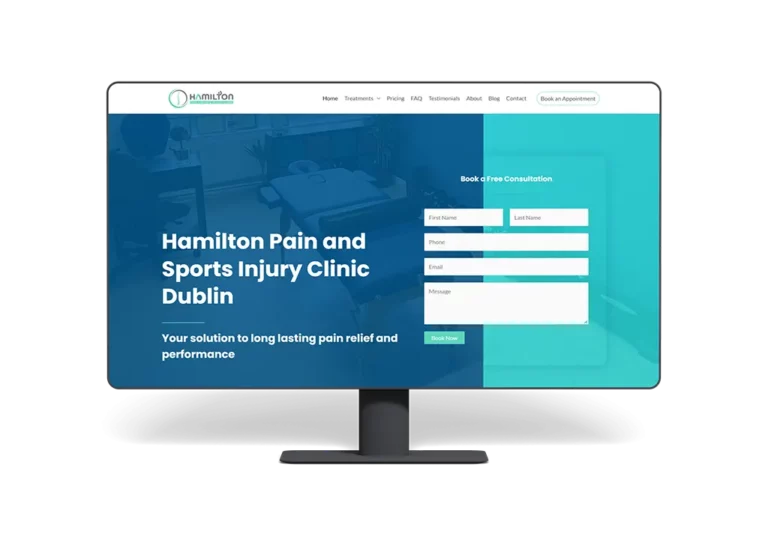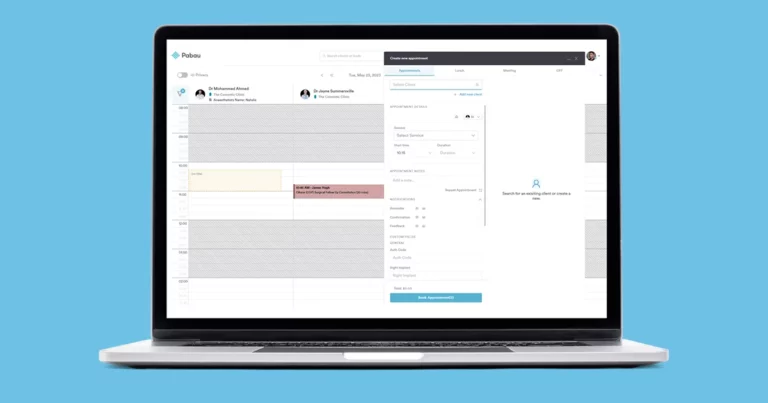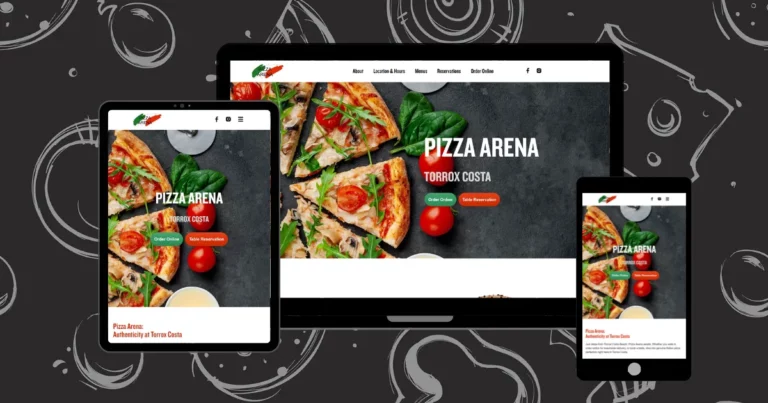Enter Customer Relationship Management, commonly known as CRM. Beyond being just a buzzword in the corporate lexicon, CRM represents a paradigm shift in how businesses view and interact with their most valued assets – their customers. Instead of transactional interactions, CRM fosters a holistic approach to building and nurturing customer relationships. It’s not just about making a sale; it’s about understanding customer preferences, anticipating their needs, and building a rapport that stands the test of time.
As the digital age continues to unfurl, the importance of CRM is only set to grow. Businesses that invest in understanding and implementing effective CRM strategies are positioning themselves not just for survival but for sustainable success in an increasingly competitive market. In the ensuing sections, we will delve deeper into what CRM is, its historical evolution, and the manifold ways it can revolutionize a business.
Defining CRM
The Acronym Unveiled: Customer Relationship Management
At its core, the acronym “CRM” stands for Customer Relationship Management. But what does this term truly encapsulate? It’s more than just a combination of words; it embodies a philosophy, a strategy, and in many cases, a critical toolset for businesses in today’s digital world.
Going Beyond the Basics: Understanding CRM
Customer Relationship Management, when broken down, reflects a company’s strategy in managing its interactions with potential and current customers. It’s the art and science of smartly navigating the vast sea of customer interactions, ensuring no touchpoint is overlooked and every opportunity is seized.
But CRM isn’t just about managing relationships in the traditional sense. It’s about deepening those relationships to create lasting loyalty. A well-implemented CRM strategy doesn’t just catalog customer information; it synthesizes this data to provide actionable insights. These insights help businesses understand the likes, dislikes, preferences, and purchasing habits of their clientele.
CRM Systems: More Than Just Software
While CRM is a strategy and approach, it’s also manifested in tangible form through CRM systems and software. Such systems act as the nerve center for businesses, especially those that interact with a vast and varied customer base daily. They serve as repositories of valuable customer data, but their true power lies in their ability to analyze this data and offer businesses a clear picture of their customer landscape.
From tracking sales leads and monitoring customer interactions to forecasting sales and personalizing marketing efforts, a CRM system is a multi-faceted tool. However, it’s essential to remember that the software, as potent as it may be, is just a tool. The real magic happens when businesses pair powerful CRM software with a well-thought-out CRM strategy.
Core Features of CRM Systems
Contact Management: The Backbone of CRM
Every business, regardless of size, thrives on its customer base. Keeping track of each customer, their preferences, purchase history, and communication records can be a herculean task without proper tools. This is where the contact management feature of CRM systems shines. It provides a centralized platform for storing and organizing every piece of vital information related to customers. From basic contact details to the last interaction date, CRM ensures no detail is left unrecorded. With efficient contact management, businesses can ensure that they approach each customer or lead with a tailored, informed approach, enhancing customer satisfaction and increasing the chances of sales conversion.
Task Management: Efficiency and Accountability
A key challenge in businesses is ensuring that tasks, be it follow-ups, meetings, or client pitches, are assigned, tracked, and executed efficiently. The task management feature in CRM systems streamlines this process. By assigning tasks to team members, setting up reminders, and monitoring progress, CRM ensures nothing slips through the cracks. This feature also provides a clear accountability structure, ensuring that everyone knows their responsibilities and deadlines, making team collaborations smoother and more productive.
Sales Pipeline Visualization: Navigating the Sales Journey
Understanding the customer’s journey through the sales funnel is crucial for timely interventions and strategy tweaks. CRM systems offer a visual representation of this journey, often referred to as the sales pipeline visualization. This feature allows businesses to see at a glance the number of potential deals in each stage of the sales process, from the initial contact to the final sale. It offers clarity on which leads need immediate attention, which ones are maturing, and which are about to close. This real-time insight ensures that businesses can allocate resources efficiently and close deals more effectively.
Reporting & Analytics: The Power of Data-Driven Decisions
In today’s business environment, intuition alone isn’t enough; decisions need to be backed by data. The reporting and analytics feature of CRM systems provides businesses with this data in an easily digestible format. By analyzing customer interactions, sales performance, team productivity, and more, CRM offers a holistic view of business performance. These insights can guide strategies, highlight strengths and weaknesses, and predict future trends. With a robust analytics tool in place, businesses can make informed decisions, optimize strategies, and stay ahead of the competition.
Integration Capabilities: Bridging the Digital Gap
In the digital age, businesses utilize a plethora of platforms, from emails and calendars to social media channels and third-party apps. CRM systems recognize this interconnected digital landscape and offer integration capabilities. This means your CRM can seamlessly connect with other platforms, ensuring a unified and coherent workflow. For instance, integrating the CRM with email platforms ensures that all communication with a customer is recorded in one place. Similarly, integrating with social media channels can provide insights into customer feedback, preferences, and market trends. This interconnectedness ensures that businesses operate in a harmonized manner, with every tool and platform working in sync towards common goals.
Benefits of CRM for Businesses
Enhanced Customer Service: Building Stronger Relationships
At the heart of every successful business is a satisfied customer base. CRM systems play a pivotal role in achieving this by facilitating personalized interactions. With access to detailed customer profiles, service representatives can address individual preferences, purchase history, and past interactions. This leads to more tailored service, which in turn fosters loyalty and trust. Instead of treating customers as mere transactions, businesses can use CRM to build deeper, lasting relationships, turning occasional buyers into brand advocates.
Increased Sales Efficiency: Accelerating the Path to Conversion
Time is money, especially in sales. The ability to quickly move a lead through the sales funnel is crucial. CRM systems streamline sales processes by offering tools that identify potential leads, nurture them, and finally convert them into paying customers. With visual sales pipelines, businesses can quickly pinpoint bottlenecks or stages where leads might be dropping off, and subsequently strategize to address these areas. The end result? Shortened sales cycles, more closed deals, and a healthier bottom line.
Improved Internal Communication: Bridging Teams Together
In any business, silos can be detrimental. Effective communication between teams—be it sales, marketing, or customer service—is paramount. CRM systems come equipped with collaborative tools that ensure team members are on the same page. By providing shared dashboards, comment sections, and real-time updates, CRM eliminates the barriers that often exist in team communications. This not only speeds up processes but also ensures that every team member has a holistic view of customer interactions.
Data-driven Decision Making: Strategies Grounded in Reality
Gut feelings and hunches can only take a business so far. In the modern world, data is king. CRM systems capture a vast array of data, from customer interactions and feedback to sales trends and campaign performance. With in-depth reporting and analytics tools, businesses can sift through this data to derive actionable insights. Instead of making decisions in the dark, companies can leverage CRM data to chart out informed, effective business strategies that resonate with market demands and customer expectations.
Automated Tasks & Reminders: The Power of Efficiency
Every business has myriad tasks, many of them repetitive: following up with leads, sending out newsletters, updating records, and so on. CRM systems introduce automation to handle such tasks. By setting up workflows and automations, businesses can ensure that these activities are carried out promptly without manual intervention, minimizing the risk of human errors. Moreover, CRM reminders ensure that no task, be it a meeting or a follow-up call, is forgotten, thus ensuring consistent customer engagement.
Centralized Data: The Single Source of Truth
Juggling multiple platforms and data sources can be chaotic and counterproductive. CRM systems bring order to this chaos by serving as a centralized repository for all customer-related data. Whether a team member wants to retrieve a past communication, check the status of a deal, or access a customer’s purchase history, they know there’s one place to look: the CRM. The ability to access this data anytime, anywhere, especially with cloud-based CRM solutions, empowers businesses to be responsive and agile in their customer engagements.
Who Can Use CRM? Breaking Down Misconceptions
The Myth: CRM is Only for Big Players
One of the prevailing misconceptions surrounding CRM systems is that they’re exclusively the domain of large corporations with vast customer bases and equally extensive budgets. While it’s undeniable that many multinationals rely on CRM systems, the truth is that businesses of all sizes can—and do—reap the benefits of these tools.
SMEs: The Agile Adopters
Small and medium-sized enterprises (SMEs) often operate with limited resources. This makes efficiency, customer retention, and targeted marketing crucial for them. CRM systems allow SMEs to optimize these very aspects. A boutique fashion retailer, for example, can use CRM to track individual customer preferences, ensuring that their marketing emails are tailored to each recipient. Or a local bakery might use CRM to manage loyalty programs, sending out discount coupons or special birthday offers to regular customers.
Freelancers & Solopreneurs: Personalization at Its Best
The era of digital nomads, freelancers, and solopreneurs is upon us. For these individuals, maintaining strong client relationships is pivotal. A freelancer, for instance, can utilize CRM to schedule project timelines, send out invoices, and even collect feedback post-project completion. By centralizing their client communication, they can offer a level of service that rivals larger competitors.
Startups: Scaling with Precision
Startups, especially in their early stages, are in a constant battle to expand their customer base while retaining their initial clients. CRM systems provide startups with tools to nurture leads and turn them into loyal customers. A tech startup, for instance, can track user engagement with their software, identify common issues, and proactively reach out with solutions or updates.
Diverse Industries: One Tool, Multiple Applications
The versatility of CRM systems means they find a place in a variety of industries:
- Real Estate: Agents can track potential leads, schedule property viewings, and manage post-sale paperwork all within a CRM.
- Healthcare: Clinics and practitioners can manage patient appointments, store medical histories, and send out reminders for check-ups.
- Education: Institutions can manage student inquiries, applications, and even alumni engagement using CRM tools.
- Hospitality: Hotels and restaurants can track guest preferences, manage bookings, and even run loyalty programs seamlessly.
- Non-Profits: Charities and NGOs can manage donor information, plan fundraising campaigns, and monitor volunteer engagement using CRM systems.
In essence, no business is too small, niche, or unique to benefit from a CRM system. With customizable features and scalable options, CRM is a tool for everyone, from the one-person show to the multinational behemoth.
Choosing the Right CRM for Your Business: A Guided Approach
Determining the Fit Based on Business Size
A business’s size significantly influences its operational needs and, by extension, its CRM requirements. For instance:
- Startups and Small Businesses: They often seek CRMs that offer cost-efficiency, essential features, and an easy setup. Systems that require minimal onboarding and offer flexibility in terms of pricing (like monthly subscriptions) may be more attractive.
- Medium-sized Businesses: As they have a more extensive customer base and a larger sales team, they need advanced features like detailed sales analytics, integration with other software, and more robust customer service tools.
- Large Enterprises: Their requirements lean towards comprehensive CRM systems that can handle a vast amount of data, integrate seamlessly with other enterprise software, and possibly offer global support for businesses operating in multiple regions.
Understanding Industry-specific Needs
Every industry has its quirks and specificities. A real estate agency and a healthcare provider won’t use CRM in the same way. Therefore, some CRM systems are tailored for specific sectors, offering features that align with the industry’s unique demands. For instance, a CRM for a healthcare provider might prioritize appointment scheduling and patient history tracking, whereas one for a real estate agency might focus on property listings and client viewings.
Integration Capabilities: A Seamless Workflow
In the age of digital tools, businesses often use a myriad of software solutions – from accounting and HR to marketing and sales. A CRM that can seamlessly integrate with these existing systems ensures a smooth flow of data across platforms. This integration minimizes the need for manual data entry, reduces errors, and enhances overall efficiency.
Scalability: Planning for Growth
A business’s needs today might not be the same a year from now. As companies grow and evolve, so do their operational requirements. A CRM system that’s scalable ensures that as the business expands, the software grows with it. Whether it’s the ability to add more users, handle increased data, or introduce new features, scalability ensures that businesses won’t outgrow their CRM prematurely.
Customization & User Experience: Making CRM Your Own
Every business has its unique workflow, and a one-size-fits-all approach rarely works. The ability to customize a CRM—be it in terms of its interface, features, or data fields—allows businesses to tailor the software to their precise needs. Besides customization, a user-friendly interface is crucial. A system that’s intuitive and easy to navigate ensures quicker adoption by the team, reduces the learning curve, and boosts overall productivity.
Harnessing the Power of CRM: A Game-Changer for Modern Businesses
In an era where data-driven decision-making reigns supreme and customer relationships are the linchpin of success, Customer Relationship Management systems emerge as more than just software—they’re business catalysts. These tools, designed to capture, interpret, and leverage data, have profoundly transformed how businesses operate, compete, and succeed in today’s digital marketplace.
At the heart of CRM is its uncanny ability to refine and redefine customer relationships. The age-old adage, “The customer is king,” finds renewed meaning in the world of CRM. By providing actionable insights, optimizing operational efficiencies, and enhancing team collaboration, CRMs help businesses treat every customer as a unique entity, with personalized needs and preferences.
But beyond the immediate operational benefits, a CRM system is an investment in a company’s future. As the digital landscape becomes more complex and customer expectations continue to rise, businesses cannot afford to lag. A reactive approach, one that’s slow to adapt and change, is not sustainable. Embracing tools like CRM ensures that businesses remain agile, proactive, and attuned to the changing dynamics of their industry.
However, as underscored throughout this article, not all CRM systems are created equal. The true power of CRM is harnessed when it’s tailored to fit the unique contours of a business—its size, industry, goals, and challenges. That’s where customization and strategic integration come into play.
Take the Next Step with Fit Bee
Are you ready to unlock the myriad benefits of CRM, designed and integrated to perfectly align with your business needs? At Fit Bee, we specialize in crafting CRM solutions that are not just software installations but transformative business tools. Our team of experts is dedicated to understanding your business goals, challenges, and growth trajectory, ensuring that the CRM solution we provide is a perfect fit—today and tomorrow.
Reach out to Fit Bee and embark on your journey to harness the full potential of CRM, amplifying your business’s growth and fortifying its future. Let’s craft success stories, together.















